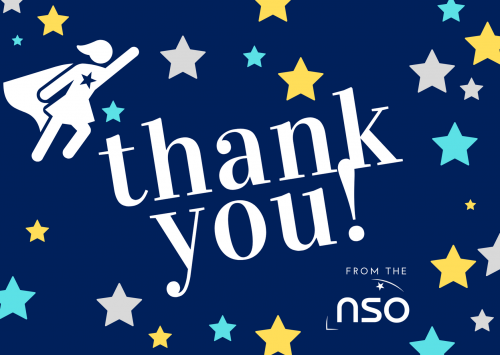Here comes the summer!
The National Schools' Observatory team just wanted to say thank you for the fantastic support we have received from our users over the last year.
have received from our users over the last year.
It has been our pleasure to provide you with resources to help you engage with astronomy/astrophysics in very challenging and ever-changing times.
We wish you all a very enjoyable summer - but here are some things you might want to check out!
NEW Research-led resources
ARI Researcher Dr. David Eden launched a new service for understanding space science stories in the news. Each Wednesday, a recent newsworthy story in astronomy is summarised. The resources include PowerPoint Slides and an Activity.
Sign up for the mailing list.
NEW History of Astronomy Content
We added loads of new information about the history of astronomy. The new topic section includes key historical figures and an interactive timeline of significant discoveries from all over the world.
Solstick 2021
Our Solstick experiment took place once again. Thank you to all who took part despite the cloudy skies! For a few days around summer Solstice 2021 (19th to 23rd June) at 1 PM, people all over the UK took a stick outside and carefully measured the length of the shadow it cast. By following in the footsteps of ancient astronomers and recreating the methods they used, you found the average circumference of the Earth to be 40,900 km - very close to the known value of about 40,000 km!
This UK national science experiment was run and hosted by the NSO and the Royal Astronomical Society.
Do some astronomy from home this summer!
Families with younger children can:
- use our template to make sundials to investigate shadows.
- keep a Moon diary to observe changes over time.
- count stars and apply their maths knowledge.
More confident astronomers can:
- calculate how many stars there are in the night sky.
- use our tools to plan an observation of a planet.
- use our calendar to go meteor spotting.
- have a go at one of our research projects.
Fingers crossed for some clear skies! But remember that you can access our archive of observational data, whatever the weather!

